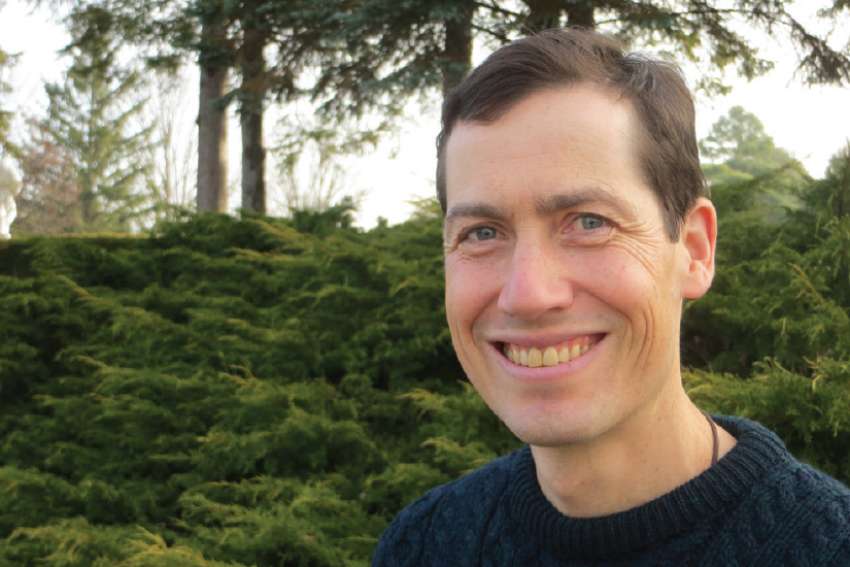And that makes for a lonely planet, says Fr. Greg Kennedy.
“The planet itself is lonely,” said Kennedy, quite bluntly. “We belong to the planet, it wants us to love it and to care for it and by not doing so (that) makes the Earth quite lonely.”
Kennedy is an author and poet who is also spiritual director at the Ignatius Jesuit Centre in Guelph, Ont. The centre promotes right relationships with God, each other and creation in the tradition of St. Ignatius of Loyola and through engagement with the land. Kennedy is to deliver the annual Nash Memorial Lecture Feb. 28 at Campion College, the Jesuit undergraduate campus at the University of Regina.
Titled “Attached and Indifferent: Technological Living on a Lonely Planet,” Kennedy aims to follow up on what fellow Jesuit Pope Francis hinted at in his environmental encyclical Laudato Si’ when he wrote that people are too detached from the planet on which they live.
“We’re lonely, creation is lonely and nobody is getting any happier,” said Kennedy, who was born and raised in Hamilton, Ont., and earned a doctorate in philosophy from the University of Ottawa.
The knowledge of creation and the environment is there, Kennedy acknowledges. It’s just that we don’t experience it as we should.
“There’s a lot of intellectual knowledge, but a deficit of experiential knowledge,” he said. “The students take environmental classes and learn about ecosystems, but they can’t name five trees in their own ecosystem.”
It’s not a lost cause, though. Kennedy points to the quick turnaround society made on smoking. For years, the numbers who smoked were very high but in a relatively short period of time those numbers declined steeply (2016 numbers from Statistics Canada show just under 17 per cent of Canadians smoke, down from the nearly 50 per cent in 1965).
Bringing this message to a university campus is a good place to start as youth are the ones who need to hear the message about rediscovering nature and the environment. That’s especially true for a generation attached to its smartphones and tablets. He said numerous studies have shown that youth who spend less time on their devices are happier people.
“There’s a direct correlation between screen time and depression,” he said. “The more they’re on screen, the more depressed they are.”
It will be a tough challenge to change these patterns. People, after all, are enamoured with technology, and rightly so — “technology is extraordinary,” he said. But maybe we can find a middle ground.
“I’ve come to see that perhaps it’s impossible to throw it all away… but can’t we live in a way that maintains the wonder of technology?” He said perhaps we can use a “catch and release” method where we “see the wonder and marvel at (technology), but then let it go” and not have it constantly around.
That could open us up to embracing the wonder of God’s creation, which is taken for granted, he said.
To Kennedy, the wonder of God’s creation is a key element in the spiritual experience. As a spiritual director, he explores the confluence of spirituality, ecology and creativity. What enlivens him most, he said, is “trees, music and good conversation.” These embody beauty, creation and friendship, and “really, these are the best elements of human life.”
“If you’ve got those covered, you’re doing pretty good in life.”
The Nash Lecture will be held Feb. 28 at 7:30 p.m. at Riffel Auditorium. See campioncollege.ca.
(Conlon is a writer in Regina.)

